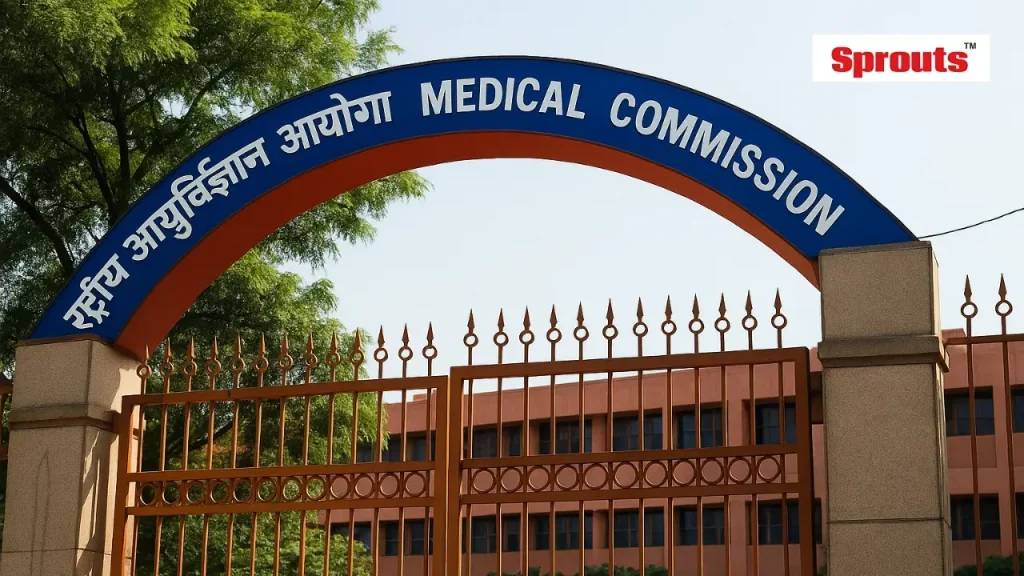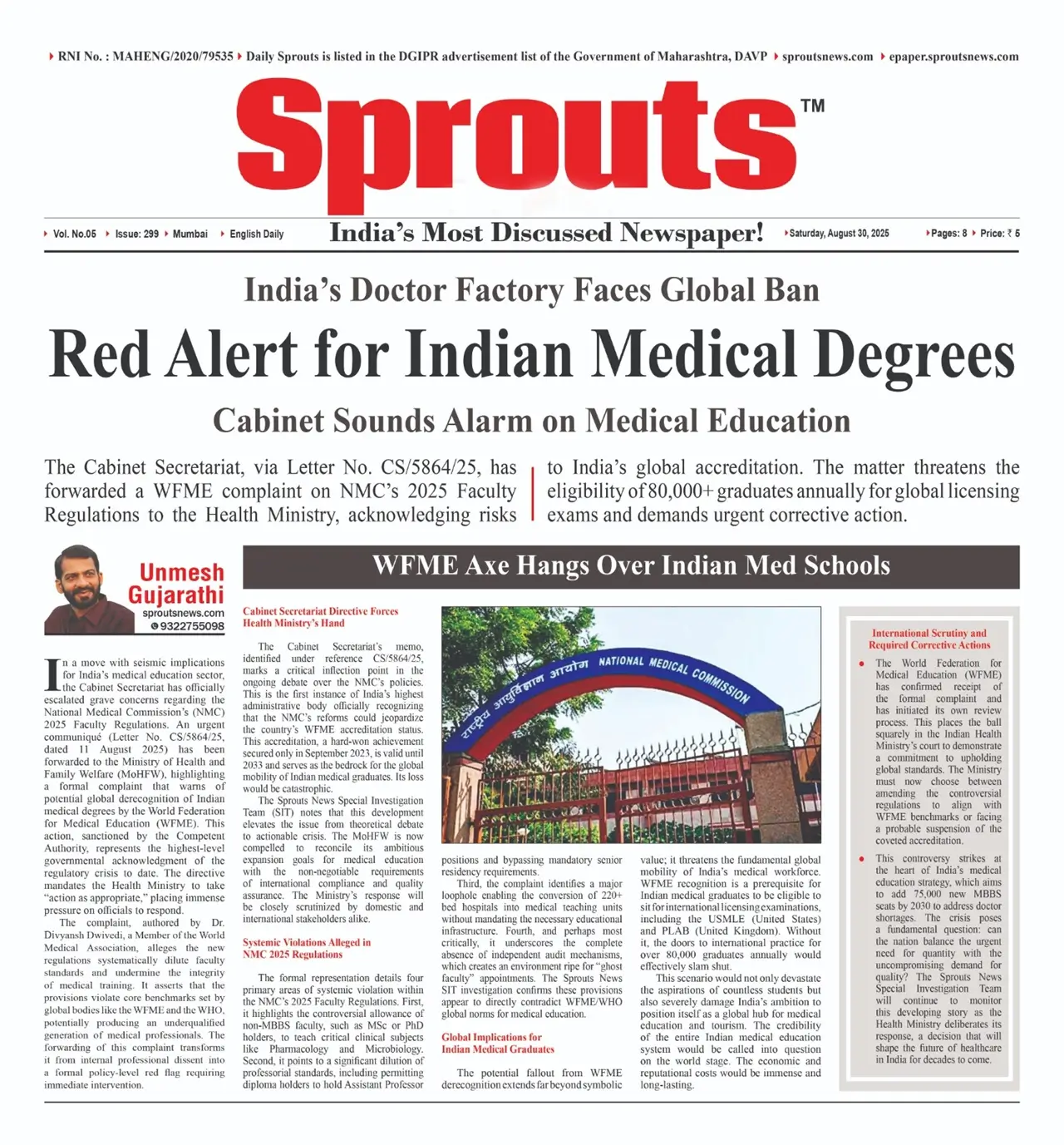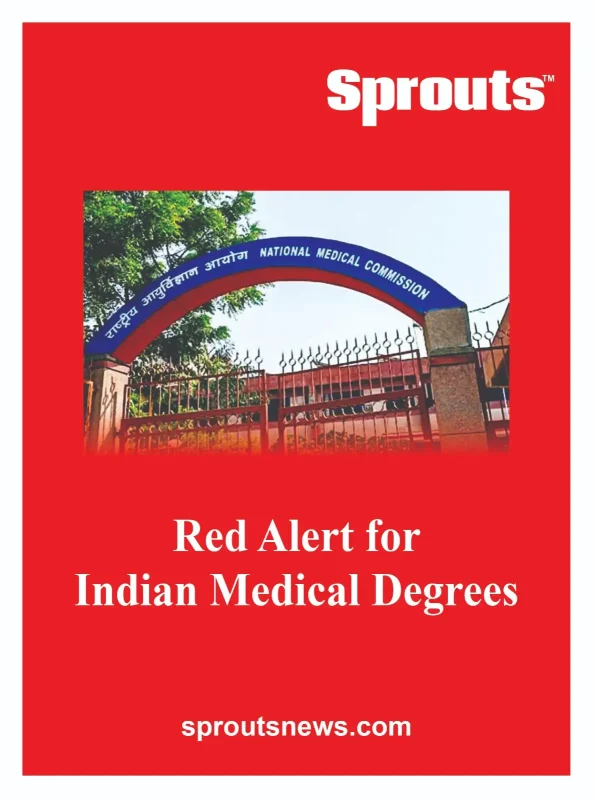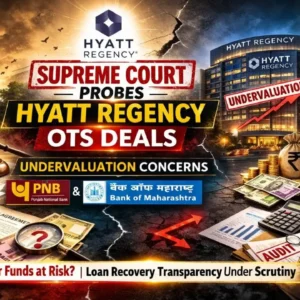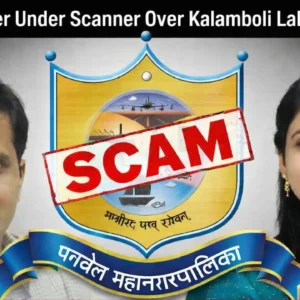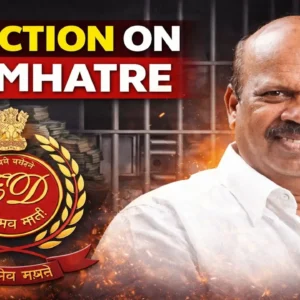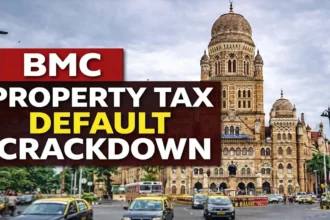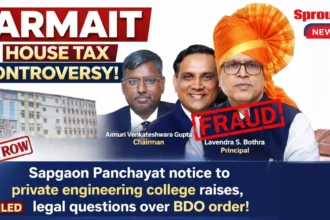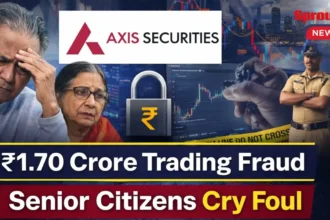Red Alert for Indian Medical Degrees
• India’s Doctor Factory Faces Global Ban
• Cabinet Sounds Alarm on Medical Education
• WFME Axe Hangs Over Indian Med Schools
Unmesh Gujarathi
Sprouts News Exclusive
Contact: +91 9322755098
- Red Alert for Indian Medical Degrees
- • India’s Doctor Factory Faces Global Ban
- • Cabinet Sounds Alarm on Medical Education
- • WFME Axe Hangs Over Indian Med Schools
- Cabinet Secretariat Directive Forces Health Ministry’s Hand
- Systemic Violations Alleged in NMC 2025 Regulations
- Global Implications for Indian Medical Graduates
- International Scrutiny and Required Corrective Actions
The Cabinet Secretariat, via Letter No. CS/5864/25, has forwarded a WFME complaint on NMC’s 2025 Faculty Regulations to the Health Ministry, acknowledging risks to India’s global accreditation. The matter threatens the eligibility of 80,000+ graduates annually for global licensing exams and demands urgent corrective action.
In a move with seismic implications for India’s medical education sector, the Cabinet Secretariat has officially escalated grave concerns regarding the National Medical Commission’s (NMC) 2025 Faculty Regulations. An urgent communiqué (Letter No. CS/5864/25, dated 11 August 2025) has been forwarded to the Ministry of Health and Family Welfare (MoHFW), highlighting a formal complaint that warns of potential global derecognition of Indian medical degrees by the World Federation for Medical Education (WFME).
This action, sanctioned by the Competent Authority, represents the highest-level governmental acknowledgment of the regulatory crisis to date. The directive mandates the Health Ministry to take “action as appropriate,” placing immense pressure on officials to respond.
The complaint, authored by Dr. Divyansh Dwivedi, a Member of the World Medical Association, alleges the new regulations systematically dilute faculty standards and undermine the integrity of medical training. It asserts that the provisions violate core benchmarks set by global bodies like the WFME and the WHO, potentially producing an underqualified generation of medical professionals. The forwarding of this complaint transforms it from internal professional dissent into a formal policy-level red flag requiring immediate intervention.
Click Here To Download the News Attachment
Cabinet Secretariat Directive Forces Health Ministry’s Hand
The Cabinet Secretariat’s memo, identified under reference CS/5864/25, marks a critical inflection point in the ongoing debate over the NMC’s policies. This is the first instance of India’s highest administrative body officially recognizing that the NMC’s reforms could jeopardize the country’s WFME accreditation status. This accreditation, a hard-won achievement secured only in September 2023, is valid until 2033 and serves as the bedrock for the global mobility of Indian medical graduates. Its loss would be catastrophic.
The Sprouts News Special Investigation Team (SIT) notes that this development elevates the issue from theoretical debate to actionable crisis. The MoHFW is now compelled to reconcile its ambitious expansion goals for medical education with the non-negotiable requirements of international compliance and quality assurance. The Ministry’s response will be closely scrutinized by domestic and international stakeholders alike.
Systemic Violations Alleged in NMC 2025 Regulations
The formal representation details four primary areas of systemic violation within the NMC’s 2025 Faculty Regulations. First, it highlights the controversial allowance of non-MBBS faculty, such as MSc or PhD holders, to teach critical clinical subjects like Pharmacology and Microbiology. Second, it points to a significant dilution of professorial standards, including permitting diploma holders to hold Assistant Professor positions and bypassing mandatory senior residency requirements.
Third, the complaint identifies a major loophole enabling the conversion of 220+ bed hospitals into medical teaching units without mandating the necessary educational infrastructure. Fourth, and perhaps most critically, it underscores the complete absence of independent audit mechanisms, which creates an environment ripe for “ghost faculty” appointments. The Sprouts News SIT investigation confirms these provisions appear to directly contradict WFME/WHO global norms for medical education.
Global Implications for Indian Medical Graduates
The potential fallout from WFME derecognition extends far beyond symbolic value; it threatens the fundamental global mobility of India’s medical workforce. WFME recognition is a prerequisite for Indian medical graduates to be eligible to sit for international licensing examinations, including the USMLE (United States) and PLAB (United Kingdom). Without it, the doors to international practice for over 80,000 graduates annually would effectively slam shut.
This scenario would not only devastate the aspirations of countless students but also severely damage India’s ambition to position itself as a global hub for medical education and tourism. The credibility of the entire Indian medical education system would be called into question on the world stage. The economic and reputational costs would be immense and long-lasting.
Also Read: Faith and Fraud: Inside Lalbaugcha Raja Mandal’s Power and Wealth.
International Scrutiny and Required Corrective Actions
The World Federation for Medical Education (WFME) has confirmed receipt of the formal complaint and has initiated its own review process. This places the ball squarely in the Indian Health Ministry’s court to demonstrate a commitment to upholding global standards. The Ministry must now choose between amending the controversial regulations to align with WFME benchmarks or facing a probable suspension of the coveted accreditation.
This controversy strikes at the heart of India’s medical education strategy, which aims to add 75,000 new MBBS seats by 2030 to address doctor shortages. The crisis poses a fundamental question: can the nation balance the urgent need for quantity with the uncompromising demand for quality? The Sprouts News Special Investigation Team will continue to monitor this developing story as the Health Ministry deliberates its response, a decision that will shape the future of healthcare in India for decades to come.


